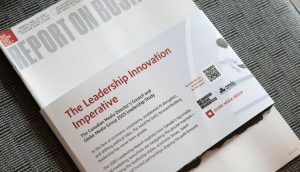As Ottawa asks the CRTC to look at unbundling cable channel packaging, Rogers Communications this week unveiled polling that indicates a majority of Canadians want pick and pay cable pricing.
“The findings reveal that Canadians prefer channel bundles, however, also want the option to build their own packages,” Rogers, which commissioned the Harris/Decima poll, reported.
Over 70% of Canadians surveyed said they were “happy” with the number and range of channels available, yet 86% want more flexibility and choice in channels they subscribe to.
“Customers have told us that they want more flexible TV options and we should be able to offer them,” said John Boynton, EVP and chief marketing officer at Rogers Communications, in a statement Monday.
The media giant supports Ottawa in its bid for more flexible packaging of TV channels, with Rogers looking to discourage cord cutting and cord shaving.
The ruling Conservatives, looking to appeal to cost-conscious consumers, propose introducing pick-and-pay TV channel selection by Canadians, and have asked the CRTC to examine issues surrounding cable unbundling.
Canadians surveyed by Harris/Decima found 78% of respondents said they subscribe to TV services from a cable or satellite provider, and that 70% of those surveyed claim their subscription is important for their entertainment needs.
At the same time, the polling revealed Canadians are looking beyond TV subscriptions to Netflix Canda and other over-the-top digital services to view video content.
“Rogers believes customers should have the option to choose flexible TV packages,” the media giant said as it presented its polling results.
Rogers has experimented with flexible cable pricing in London, Ontario and found 92% of its test market of 1000 consumers subscribed to incremental packages, while only 8% chose not to subscribe to additional channels beyond their basic cable package.
“The results from our London trial clearly show our TV customers embrace more choice when it comes to their TV packaging and we want to offer it,” said Boynton.
The poll surveyed 1,019 Canadians between November 7 and 11, 2013, and is considered accurate to a margin of plus or minus 3.1 per cent, 19 times out of 20.
From Playback Daily
























